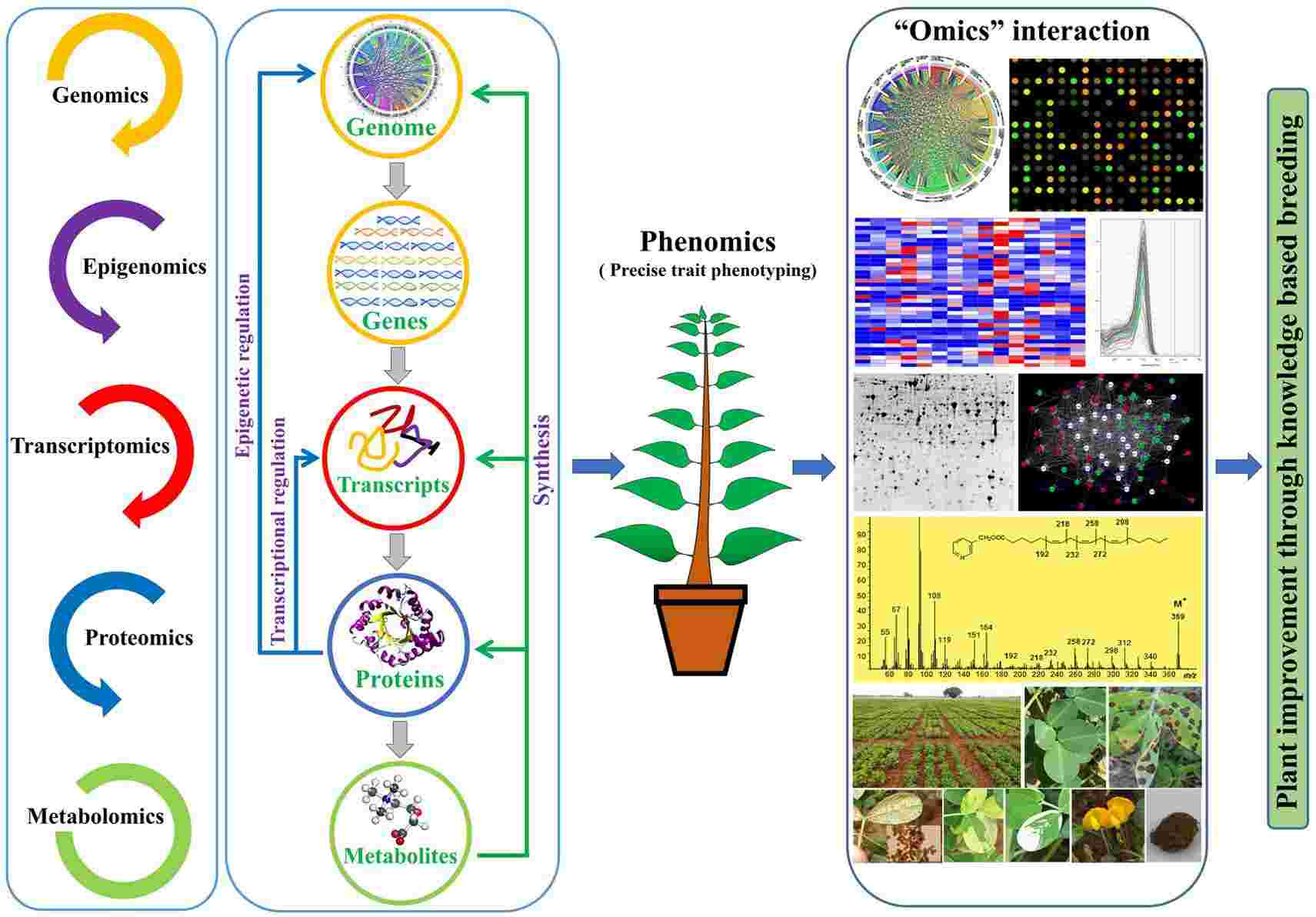Metabolites play a central role in sustaining the organism’s life and determining crop phenotypes such as nutritional value, aroma, color, and resistance to stress. Among the "omics" of biology, the metabolome is the closest to the phenotype. Therefore, metabolomics has been applied to crop improvement, the discovery of markers and diagnostics, and phenotypic analysis of metabolite genomic predictions, among others. The combination of genetics and metabolomics, referred to as genetic metabolomics, has been successfully used in models and crop species to identify genetic regions associated with specific metabolites or metabolic profiles. Forage breeding is currently under increasing pressure to provide the livestock industry with new varieties of higher yield, quality, and durability. However, there are only very few studies on the genetical metabolomics of forage plants.
 Fig.1. An overview for the use of "omics" approaches for crop improvement. (Kumar R, et al., 2017)
Fig.1. An overview for the use of "omics" approaches for crop improvement. (Kumar R, et al., 2017)
We have extensive experience in metabolomics and breeding for the genetics of other crops, including rice, tomato, maize, and wheat. Here, our team of experts is developing metabolomics as a powerful tool for trait improvement in forage breeding. We combine sensitive, automated, and high-throughput analytical tools, advanced bioinformatics, and genomics technologies to help you fully explore and rationalize the rich metabolites of forage biosynthesis for a wide range of forage breeding applications.
As the ideal partner for forage metabolomics, Lifeasible offers customized genetic metabolomics solutions for forage breeding.
Fructan metabolism is very complex. We offer metabolic profiling methods to identify quantitative trait loci associated with high sugar content in forage grass leaves. We help our customers breed forage grasses with high leaf sugar content to increase energy supply to rumen microbes, reduce N loss due to rumen protein degradation, and increase N supply to ruminants.
The production of fungal metabolites is partially regulated by the host genome. We develop targeted LC-MS/MS analysis and purification methods for fungal metabolite identification and non-targeted metabolome analysis. Our marker-assisted selection is a highly sought-after option for breeding endophyte-pastoral associations with specific metabolic compositions.
Forage cell walls are complexes of insoluble polyphenolic lignin, whose low digestibility can negatively impact forage intake. We focus on fiber chemical composition analysis to enable the application of metabolomics in forage breeding. Our scientists develop gentle extraction methods for chromatographic separation of the larger lignin, polysaccharide, and hydroxycinnamic acid complexes and detect them by MS. Our advanced metabolomics-based approach can provide high-throughput detection and selection methods for forage genotypes, improve forage quality, and help overcome some of the limitations of current forage breeding programs.
Depending on customer needs, our researchers select the best platform to assist in forage breeding by considering the type of metabolites to be analyzed, the required quantitative precision, and the availability of the platform. We can develop new strategies for forage improvement. Our genetic metabolomics approach is improving the accuracy and speed of forage breeding programs to develop climate-smart and nutrient-rich germplasm resources. Lifeasible is one of the world's leading companies in forage metabolomics analysis. If you have any special requirements about our solutions, please feel free to contact us.
Reference